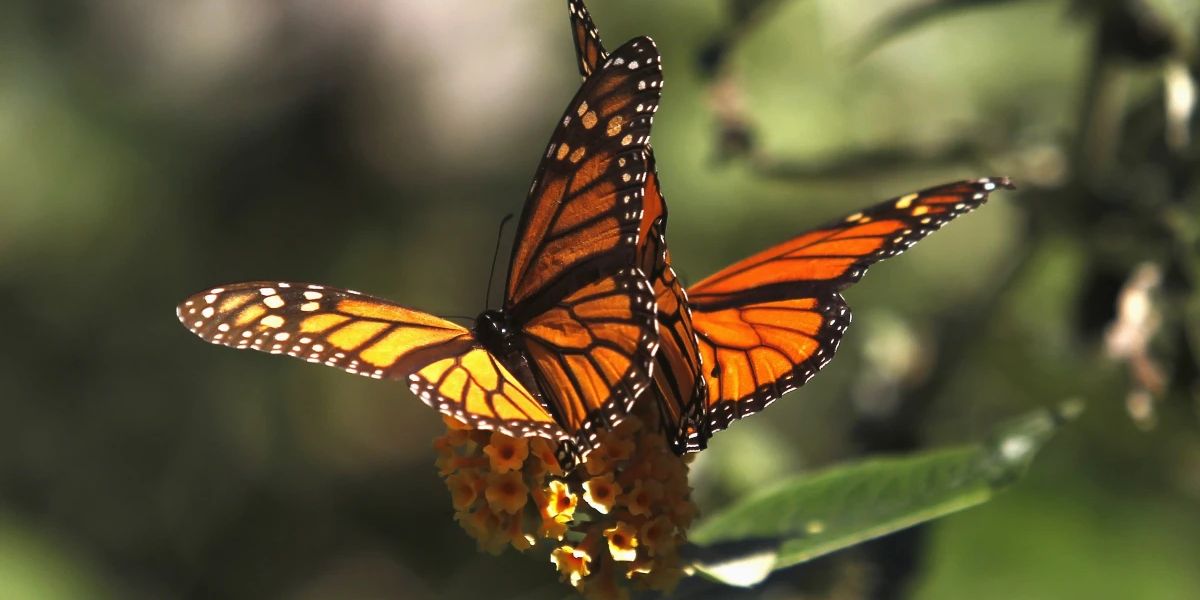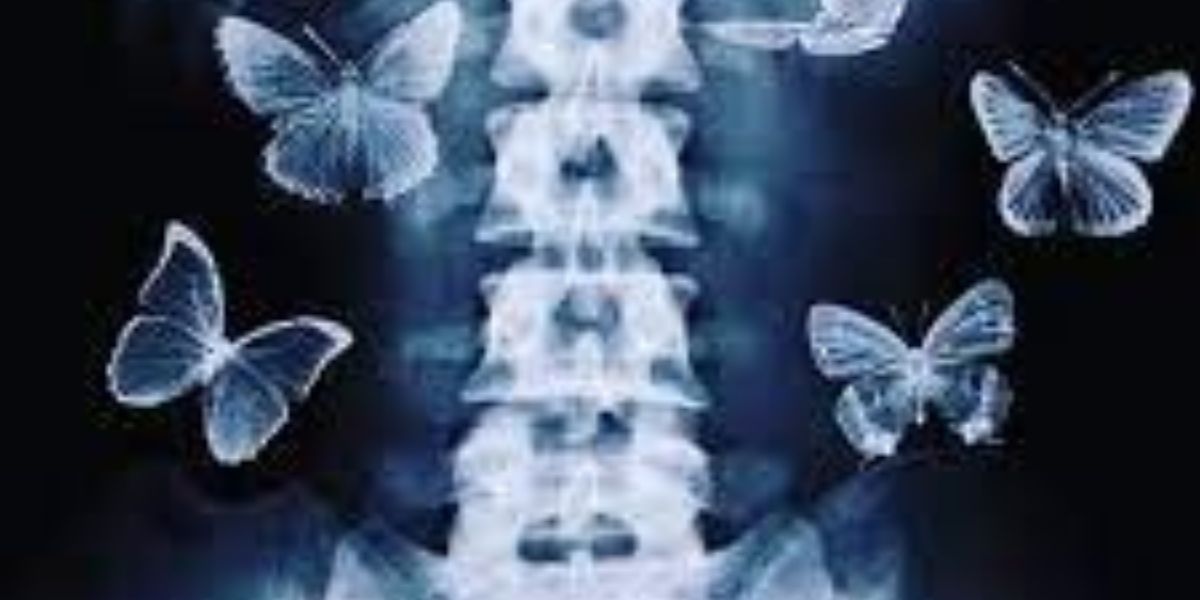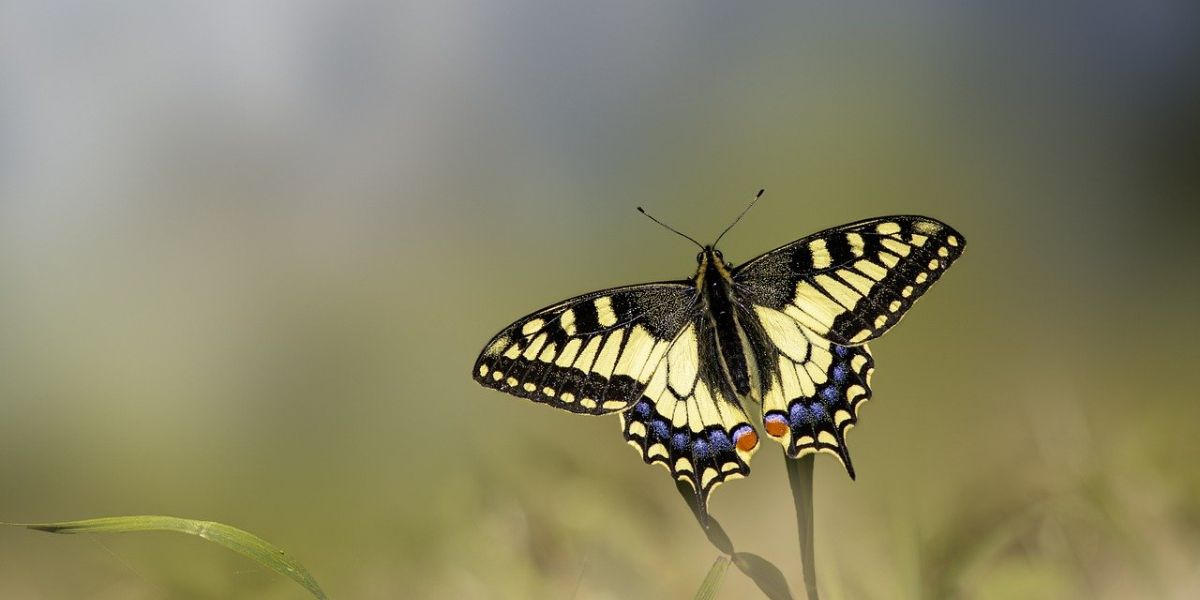A unique sensation that seems to possess our bellies before a significant event is commonly referred to as “butterflies in the stomach.” This sensation is characterized by the fluttering of wings, the rush of adrenaline, and the peculiar sensation. It is a regular human experience to go through this phenomenon, which frequently occurs in conjunction with feelings of excitement, anticipation, or even nervousness. In any case, what exactly is the reason for this sensation, and why does it take place?
The purpose of this in-depth investigation is to investigate the scientific basis behind the sensation of butterflies in the stomach, thereby illuminating the complex relationship that exists between our feelings, the chemical composition of our brains, and the gut-brain axis.
Acquiring an Understanding of the Butterfly Opinion:

Let’s first get a better understanding of what this sensation implies before we proceed to explore the science that underpins the butterflies in the stomach. Assume that you are experiencing a sense that is comparable to tense anticipation or excitement, such as the sensation of small butterflies fluttering in your stomach.
The phrase is figurative, but the physical feelings are extremely real. They manifest as a tingling or fluttering feeling in the abdomen, and they are frequently accompanied by a racing heartbeat or sweaty hands.
In the minutes leading up to big events, such as public speaking engagements, job interviews, first dates, or times of excitement, it is typical to feel this emotion. Even while it is most commonly connected with feelings of worry or anxiety, it can also be accompanied by positive emotions such as enthusiasm, anticipation, or even love among certain people.
Understanding the Scientific Basis of the Butterfly Feeling
The Chemical That Makes You Feel Good: Dopamine
Dopamine, which is commonly referred to as the “feel-good” neurotransmitter, is the chemical that is responsible for the sensation of butterflies in the stomach. A neurotransmitter known as dopamine is linked to feelings of pleasure, reward, and increased motivation.

Our brains release dopamine in response to the anticipation of something exciting or pleasurable, such as the anticipated meeting of a loved one or the beginning of an exciting journey.
This release of dopamine causes us to experience sensations of euphoria and excitement. This spike of dopamine can appear physically as a fluttering sensation in the stomach, which contributes to the impression of having butterflies in the stomach.
Also known as the “Stress Hormone,” norepinephrine
Norepinephrine, a stress hormone that is generated by the adrenal glands in response to fear or stress, is another important factor in the sense of butterflies. Dopamine is also a significant contributor to this sensation.
Our bodies activate the fight-or-flight reaction in response to a perceived threat or challenge, whether it be a terrifying presentation or an exciting roller coaster ride. This response causes the release of norepinephrine, which is a neurotransmitter that helps us deal with stressful situations. Arousal is increased, attention is sharpened, and the body is getting ready to take action thanks to this hormone.
On the other hand, when consumed in large quantities, it can also cause physical symptoms such as an elevated heart rate, sweating, and the typical sense of fluttering in the stomach.

Our evolutionary roots can be traced back to the sensation of butterflies in the stomach that we experience regularly. During the time of our ancestors, when we were confronted with a potential danger or an exciting opportunity, our bodies would go through a series of physiological reactions that were designed to improve our chances of surviving or getting ahead.
It is possible that the release of stress hormones such as norepinephrine would heighten our senses and mobilize our energy reserves, thereby preparing us to either fight the threat or seize the opportunity. There is a possibility that the sensation of butterflies is a remnant of our primal fight-or-flight reaction, a physiological echo of our ancestors’ willingness to face obstacles or pursue rewards.
The Gut-Brain Axis: The Second Brain of An Individual
In addition to the domain of neurotransmitters and hormones, there is an interesting network that is referred to as the gut-brain axis. This axis is a communication system that flows in both directions between the gut and the brain. The central nervous system (CNS), the enteric nervous system (ENS), which is frequently referred to as the “second brain,” and the gut microbiota are all involved in a complex interaction that is referred to as the gut-brain axis.
A Brief Introduction to the Gut-Brain Axis:
The gut-brain axis is a dynamic channel that allows messages to move between the gastrointestinal tract and the central nervous system. These signals have the ability to influence a variety of elements of our physical and mental well-being. At the same time as it regulates behavior, emotion, cognition, and immune function, this communication system works in both directions, making it an extremely important component.
Our digestive system’s ability to communicate with our brain is as follows:

A multitude of routes, including neurological, hormonal, and immunological systems, are responsible for the communication that takes place between the gut and the brain. One of the most important nerves that connects the brain to the abdomen is the vagus nerve, which plays a crucial part in the process of signal transmission between the two of these systems.
In addition, the stomach is responsible for the production of a wide variety of neurotransmitters, one of which is serotonin, which is commonly referred to as the “happy hormone” and has an effect on one’s mood and emotional state.
The Function of the Enteric Nervous System (ENS) in the Experience of Sensations Related to the Gut
Located at the core of the gut-brain axis is the enteric nervous system, which is comprised of a sophisticated network of neurons that are embedded within the walls of the gastrointestinal tract. The endocrine system (ENS) is responsible for a number of digestive processes, including peristalsis and the absorption of nutrients.
In addition, the ENS plays a significant part in the production of sensations associated to the gut, such as the sensation of butterflies in the stomach. By detecting changes in the environment of the gut and transmitting this information to the brain, the endocannabinoid system (ENS) has the ability to influence our emotional state and vice versa.
Do butterflies in the stomach indicate that a person is in love?

The sensation of butterflies in the stomach is said to have a connection to romantic love, which is one of the persistent misconceptions surrounding this sensory experience. Numerous poetry, songs, and love stories have romanticized the concept that experiencing butterflies is a sign that one is going through a passionate relationship. Nevertheless, does this view have any validity in scientific research?
In a 1949 study that examined how various types of stress affected the stomach, researchers used a hollow metal tube with a light and lens at the end to peep into the colons of healthy medical students. The researchers told one student that they had discovered cancer in his rectum (when in fact, his colon appeared normal).
As they recounted these fake findings, including presenting the student a “biopsy” of his tumor, which was actually a piece of potato, they noticed the student’s colon spasm. When they disclosed their hoax and the student learned he didn’t have cancer after all, his colon relaxed immediately.
Scientists have shown that loud, cacophonous words and sounds played in different ears at the same time can disturb the rhythms of our guts, as well as telling a lie or discussing uncomfortable life events such as being rejected by a love interest.
It would be difficult to conduct such tests during a romantic dinner date (imagine having a probe in your colon while making a small chat at a restaurant), but scientists have leveraged decades of research on gut-brain communication to hypothesize about why dating can cause butterflies in the gut.
Yvette Taché, a neurobiologist and professor of medicine at the David Geffen School of Medicine at UCLA, has been researching how stress impacts the gut-brain connection since the 1980s. When you’re nervous about your date or don’t know how your date feels about you, your brain may release corticotropin-releasing hormone, which increases adrenaline in the “fight-or-flight” reaction.
(This hormone is also responsible for a beating heart after the meal when your date twiddles their keys by their door – will you be let in or is the evening over?) At the same time, this molecule increases cortisol, a hormone that rises during the first few months of falling in love and then declines as the relationship stabilizes.
According to Dr. Taché, the sensation of “butterflies” is most likely caused by this molecule, which also delays the emptying of our stomachs while speeding up our colons. This could happen as a form of protection, she suggested. Under stress, our intestines become more permeable, or “leaky,” which could be hazardous if waste from within our guts enters our bloodstreams. In principle, she continued, stopping our stomachs and emptying our colons could reduce the likelihood of that happening.
A Response to the Generally Held Belief:

There is a strong correlation between the sensation of butterflies in the stomach and feelings of heightened arousal or excitement, which is presumably where the idea that butterflies in the stomach symbolize love emerged. Our bodies go through physiological changes that are comparable to those that are induced by excitement or uneasiness while we are experiencing romantic attraction or infatuation that we are experiencing. It is possible for these sensations to become more intense as a result of the release of dopamine and norepinephrine, which can result in the stomach feeling that is distinctive of them.
The Investigation of the Scientific Evidence:
Love is a complicated emotion that is influenced by a variety of elements, including connection, closeness, and commitment. Although the feeling of butterflies may indeed accompany thoughts of romantic attraction or anticipation, it is essential to remember that love is a multifaceted emotion. It is possible that butterflies in the stomach are a symptom of the beginning stages of romantic attraction or infatuation; however, they are not a clear signal of long-term love or compatibility.
Butterflies in the stomach: how to deal with them?
In spite of the fact that experiencing butterflies in the stomach is a normal reaction to excitement or worry, experiencing an excessive amount of anxiety can hinder performance and reduce enjoyment. Fortunately, there are a number of methods that may be utilized to manage uneasiness and to calm the fluttering sensation that occurs in the stomach:

- Deep breathing exercises can help trigger the body’s relaxation response, which can counteract the physiological consequences of stress and anxiety. Deep breathing exercises can be practiced. Make an effort to take a deep breath in via your nose, after which you should fill your lungs with air and then gently exhale through your mouth. It is recommended that you perform this process multiple times in order to achieve a state of calm and relaxation.
- Practice Mindfulness Meditation: Mindfulness meditation is a practice that involves focusing your attention on the current moment without passing judgment on it. This practice enables you to grow awareness and acceptance of your thoughts and feelings. Regular meditation practice can help reduce stress, improve self-awareness, and create emotional resilience, making it a useful strategy for managing butterflies in the stomach. Meditation can also assist develop emotional resilience.
- Visualization techniques entail mentally rehearsing a successful outcome, vividly visualizing yourself doing well and attaining your goals. Visualization techniques are designed to help people achieve their goals. You may effectively soothe the butterflies in your stomach by envisioning achievement. This will help you to inspire confidence, ease worry, and enhance performance.
- Adopt a Healthy Lifestyle: Make taking care of yourself a top priority by adopting a healthy lifestyle that includes regular exercise, balanced nutrition, appropriate sleep, and skills for managing stress. Endorphins, which are natural mood boosters, are released when physically active people engage in physical exercise. Additionally, a good diet and adequate sleep improve overall well-being and resilience to stress.
Conclusion
The sensation of butterflies in the stomach is a fascinating interaction of psychology, physiology, and neurobiology. It reflects the deep connections that exist between our feelings, the chemistry of our brains, and the gut-brain axis.
Whether it is experienced before a presentation that is nerve-wracking, an expedition that is exhilarating, or a romantic encounter, this phenomenon serves as a reminder of our intrinsic propensity for excitement, anticipation, and vulnerability.
We are able to handle periods of nervousness with grace and resilience if we have a grasp of the science that underlies the sensation of butterflies and if we utilize appropriate coping mechanisms. This allows us to recognize the excitement of anticipation while simultaneously relaxing the fluttering sensations that we experience in our bellies.










